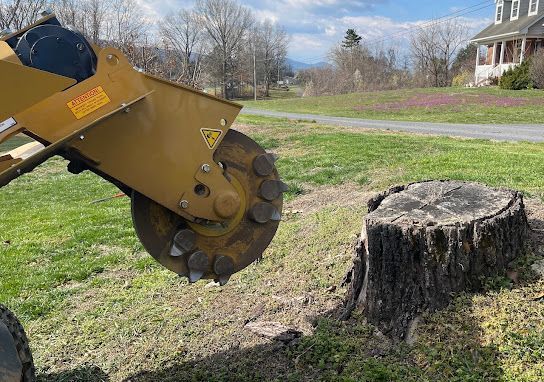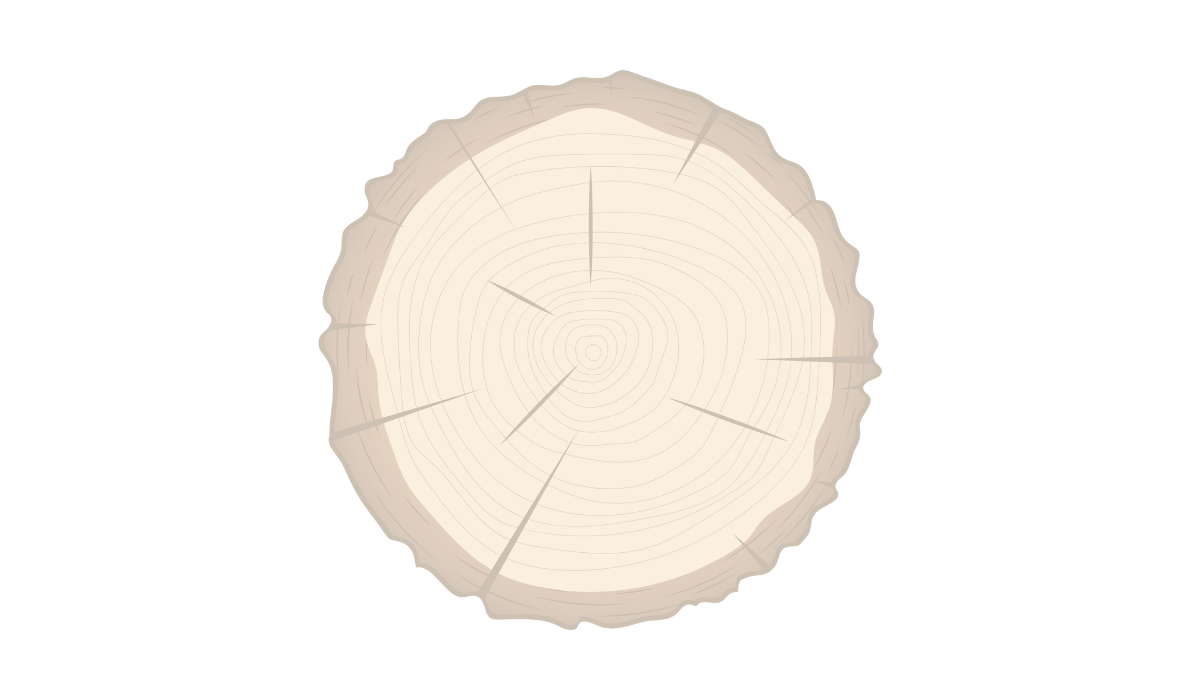Client Resources
Your One Stop Shop For Everything Tree Care Related
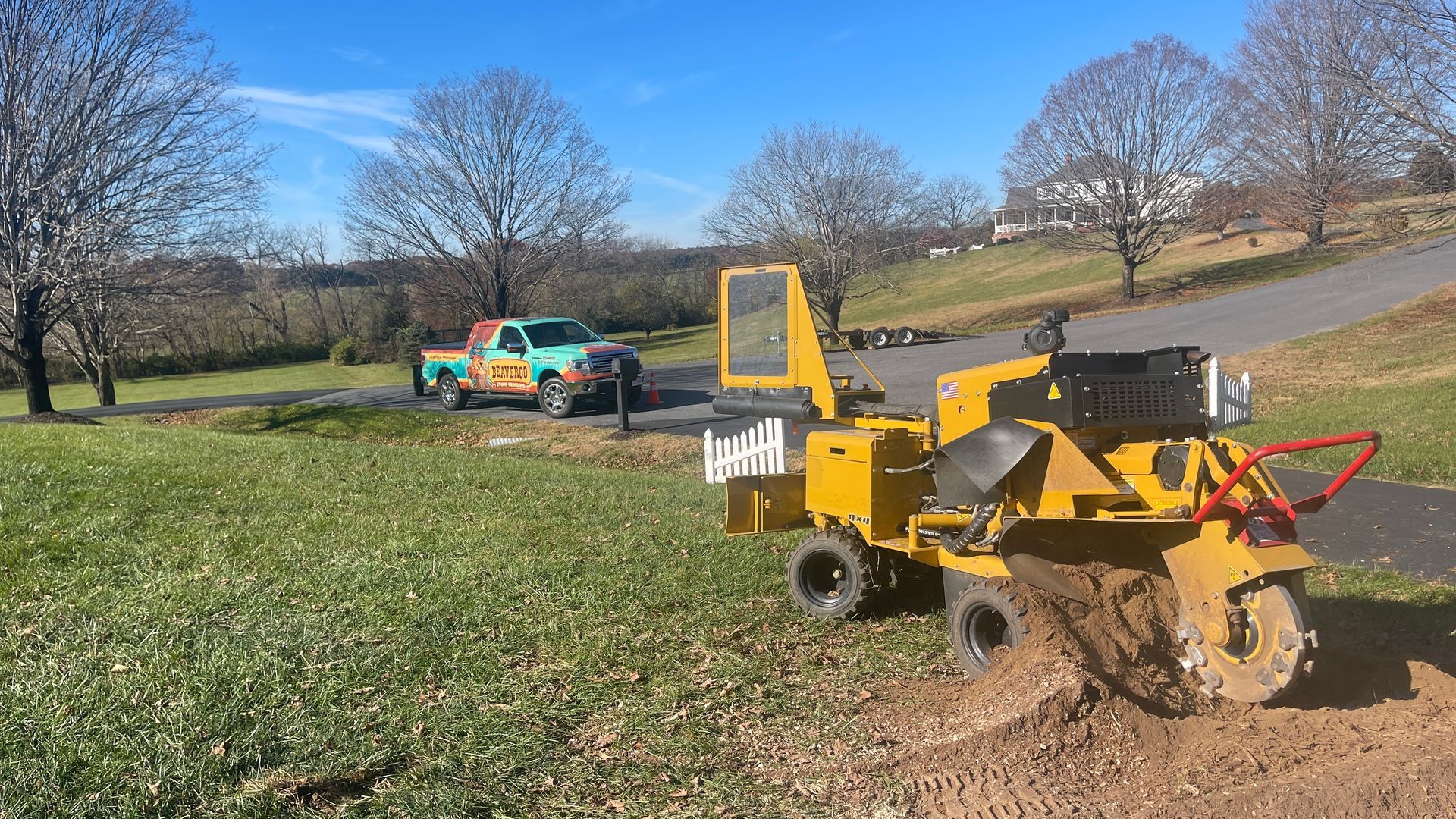
Stump Care Essentials
From Stump Negligence, Measuring Your Stump, & More...
Stump grinding is a specialized service that many have never experienced. There are some things you may want to educate yourself on before hiring a professional like Beaveroo Stump Grinding. Check out the resources below to learn about the effects of leaving pesky stumps unchecked, how to measure your stump for a rough DIY quote, post-stump grinding tips and tricks, and stump grinding challenges unique to different tree types native to the Shenandoah Valley.
Stumped? Call the Chew Crew!
Stump Negligence
What Happens If I Don’t Grind My Stumps?
Neglecting a stump can lead to various problems that affect your property. Here are the top 5 harmful effects:
- Pest Infestations:
Decaying stumps attract pests like termites, ants, and beetles, which can spread to healthy trees and structures.
- Safety Hazards:
Stumps can be tripping hazards, especially in high-traffic areas, leading to potential injuries.
- Disease Spread:
Old stumps can harbor diseases that can spread to other trees and plants, compromising your landscape's health.
- Regrowth Issues:
Untreated stumps can sprout new shoots, leading to unwanted tree regrowth.
- Aesthetic Decline:
Stumps are unsightly and can detract from the overall appearance of your property.
Learn more about the consequences of stump negligence and how to avoid them by clicking the button below.
How To Measure Your Stump For Quoting
Steps To Get A Ballpark Estimate
Measuring your stump is easy with these simple steps:
- Clear the Area:
Remove any debris or obstacles around the stump to get an accurate measurement.
- Measure the Diameter:
Using a tape measure, find the widest part of the stump and measure across.
- Measure the Height:
Measure from the ground to the highest point of the stump.
- Note Root Flares:
Include any root flares in your measurements, as they can affect the cost.
- Take Photos:
Capture clear photos of the stump from different angles for reference.
Post Stump Grind Tips
Optimize Your Landscape
Stump grinding is just the first step. Here are some tips and tricks to make the most out of your post-stump grinding landscape:
- Use Stump Grindings as Mulch:
The wood chips left from grinding can be used as mulch in your garden to help retain moisture and suppress weeds.
- Prevent Future Growth:
Apply a herbicide to the area immediately after grinding to prevent any remaining roots from sprouting new growth.
- Fill the Hole:
Use topsoil to fill in the hole left by the stump, then plant grass seed or sod to restore the area.
- Monitor for Pests:
Keep an eye on the area for signs of pest infestations and treat promptly to protect your landscape.
- Plan New Plantings:
Consider planting new trees or shrubs in the area, but ensure you wait a while to allow the soil to settle and regain nutrients.
For more detailed post-stump grinding tips and tricks, click the button below.
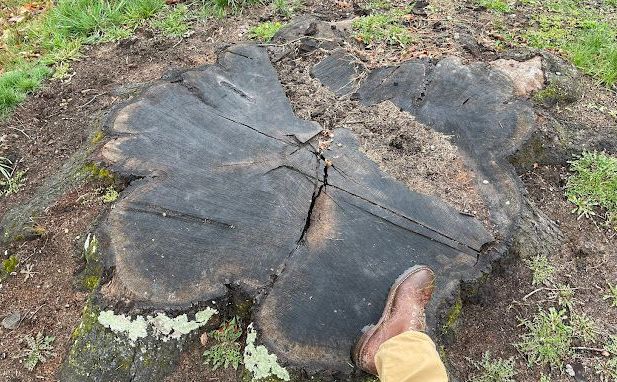
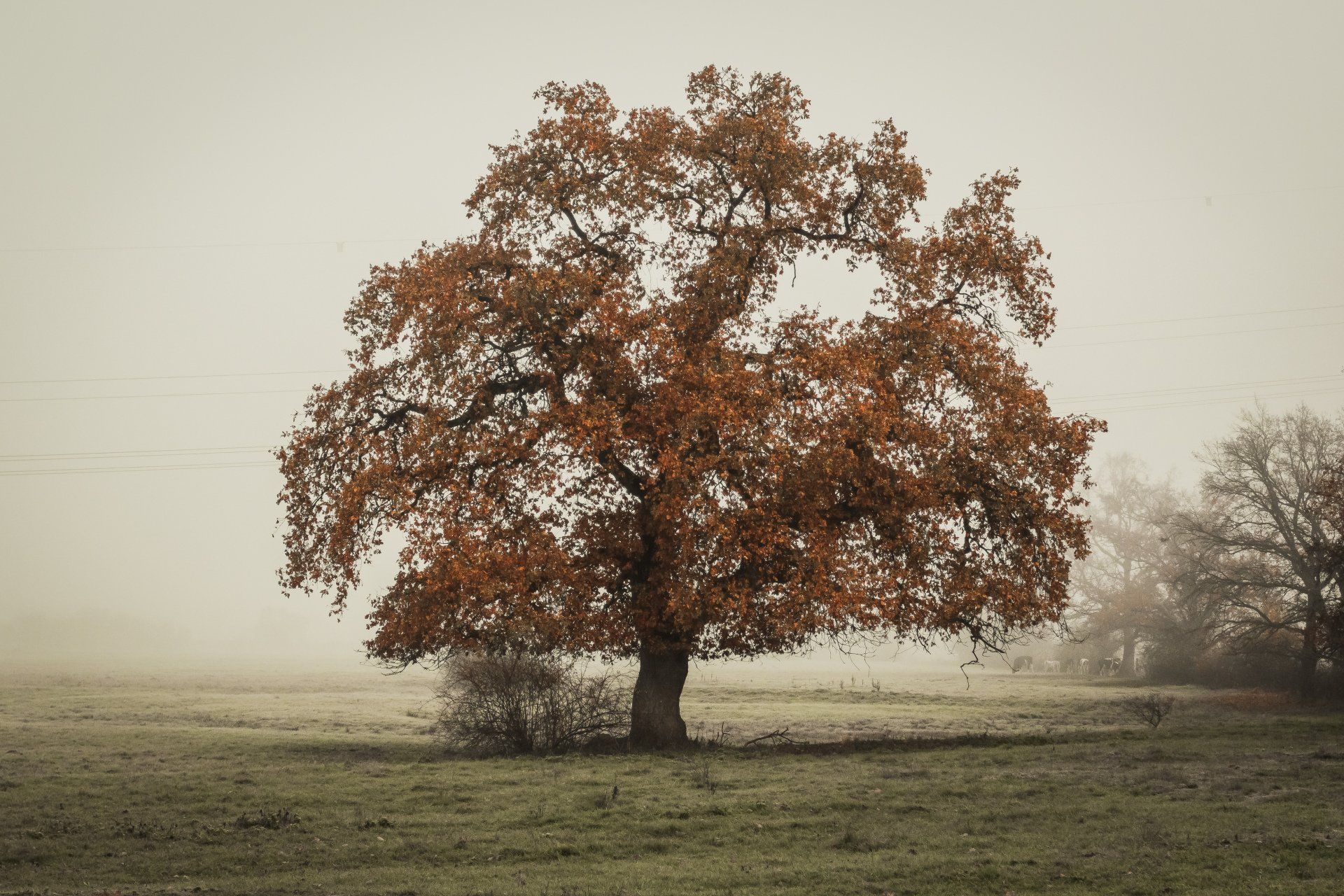
Tree Species and Stump Grinding Challenges
Understanding Your Local Trees
Different tree species present unique challenges when it comes to stump grinding. Here are five native tree species in the Shenandoah Valley and the specific challenges they pose:
- Oak Trees:
Known for their hard wood, oak stumps are particularly tough and require powerful grinding equipment to remove.
- Maple Trees:
The dense root systems of maple trees can make stump grinding more complex and time-consuming.
- Pine Trees:
While easier to grind, pine stumps often leave behind a lot of sticky resin, making cleanup more challenging.
- Black Walnut Trees:
These trees are highly resistant to decay, which means their stumps remain solid for a long time and are difficult to grind.
- Locust Trees:
The hard wood and deep root systems of locust trees make stump grinding a demanding task that often requires professional assistance.
To learn more in-depth about tree species and their unique stump grinding challenges, click the button below.
Why Trust Our Stump Grinding Expertise?
Your Reliable Local Partner
-
Years Of Grinding
ButtonAs a family-owned business rooted in the Shenandoah Valley, we treat our clients like kin. We know these roads like the back of our hand. Whether you're in downtown Harrisonburg or up an old holler in Elkton, we know where it is, and we're confident we can get there.
-
Professional & American Made Equipment
ButtonWe proudly use top-of-the-line, American-made equipment to get the job done right. Our dedication to quality equipment means efficient and reliable results every time.
-
Full-Service Stump Grinding & Cleanup
ButtonFrom stump grinding to thorough cleanup, we handle it all. Whether you want to keep the mulch or have it hauled away, we’ve got you covered.
-
Fair & Honest Pricing
ButtonWe believe in treating folks fairly. Our pricing is transparent and competitive, ensuring you get the best value for your investment.
What Rockingham County Says About Beaveroo Stump Grinding
Delivering 5 Star Service Everytime!
Where We Offer Stump Grinding Near Harrisonburg
Serving All Of Rockingham County & Beyond!
We proudly provide stump grinding services to various locations near Harrisonburg, ensuring your property remains safe and beautiful. Our service areas include:
- Harrisonburg
- Waynesboro
- Staunton
- Grottoes
- Elkton
- Weyers Cave
- Shenandoah
- Afton
- Staunton
- Fishersville
- Hinton
- Timberville
- Bridgewater
- Mount Crawford
- And More!
No matter where you are in the Shenandoah Valley, we're ready to help you with your stump grinding needs today!
Stump Grinding FAQS
How long does it typically take to grind a stump?
At Renew Land Management, the time it takes to grind a stump typically ranges from 15 minutes to a few hours, depending on the size and complexity of the stump. Smaller stumps can be handled quickly, while larger stumps or those with extensive root systems may take longer to fully grind down.
What is the average cost per stump in Rockingham County?
The average cost per stump in Rockingham County can vary based on size, location, and root complexity. Generally, you can expect to pay between $100 and $400 per stump. For a more accurate estimate, it's best to provide measurements and photos to our owner, William, who will give you a ballpark figure before conducting an onsite assessment.
Can you grind stumps that are close to buildings or other structures?
Yes, we can grind stumps that are close to buildings or other structures. Our experienced team uses precise techniques and state-of-the-art equipment to safely remove stumps without causing damage to nearby structures. We take all necessary precautions to ensure the safety of your property.
What type of maintenance is required after stump grinding?
After stump grinding, you should monitor the area for any signs of regrowth or pest infestations. Applying a herbicide can prevent new shoots from sprouting. Additionally, you may want to fill the hole with topsoil and plant grass seed or sod to restore the area. Keeping the area clean and well-maintained will help ensure a smooth recovery.
Are there any tree species that are more difficult to grind than others?
Yes, certain tree species native to the Shenandoah Valley, such as oak and black walnut, are known for their hard wood and can be more challenging to grind. These stumps often require more time and powerful equipment to remove completely. Our team is equipped to handle even the toughest stumps efficiently.
What should I do with the wood chips and debris after stump grinding?
The wood chips and debris left after stump grinding can be used as mulch in your garden, helping to retain moisture and suppress weeds. If you prefer, we can also remove the debris for you, ensuring your property remains clean and tidy. The choice is yours based on your landscaping needs.

